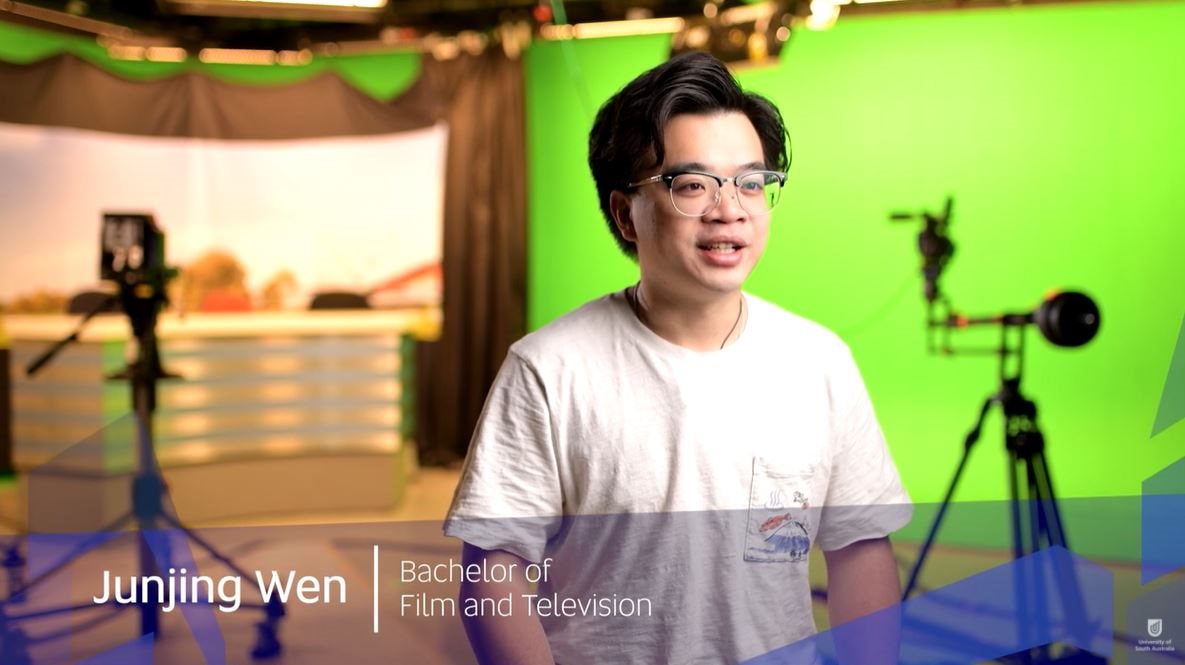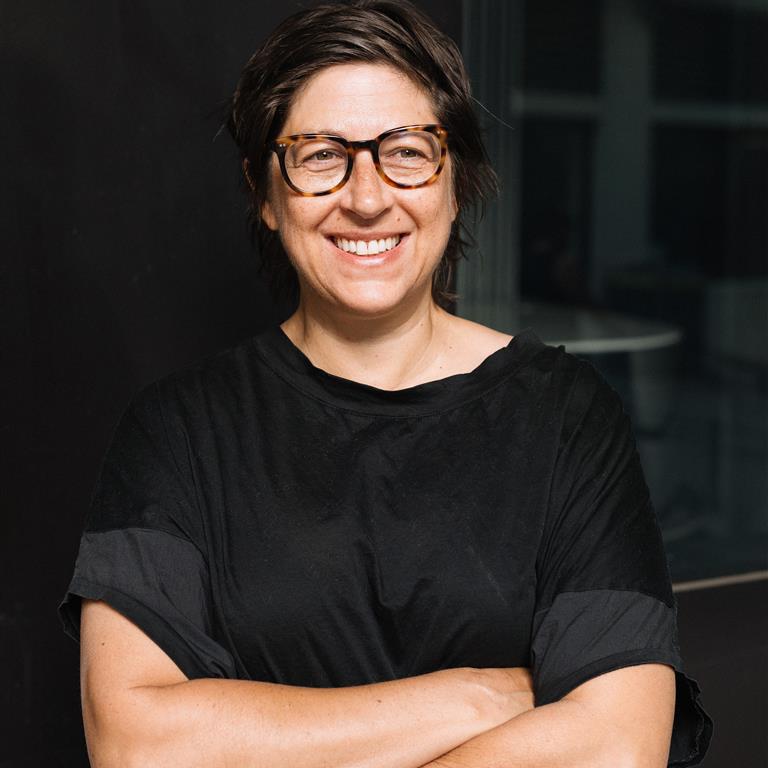Bachelor of Film and Television
Degree Level Undergraduate
Year 2025
You're considered an International student if you are:
Degree Level Undergraduate
Year 2025
Program Code
MBME
Prerequisites
None
Assumed Knowledge
None
Fees
AUD$ 32,800 per annum (per 1.0 EFTSL) for students enrolled in 2025
Admissions
Student Profile
International Admission by Country
See full entry requirements
CRICOS Code
058520G
The admission criteria have been grouped to assist you to easily find the information most relevant to your circumstances. However, you may fit into more than one and the university will consider applicants against each of the relevant criteria.
Certain conditions apply. For more information refer to Appendix 4 of the University's Selection and Entry policy.
Applicants are required to meet one of the following criteria with a competitive result, and demonstrate that they fulfill any prerequisite requirements and essential requirements for admission:
Recent secondary education
Meet any prerequisite requirements with a minimum grade of C- or equivalent
AND
Applicants who have not achieved the Selection Rank required for automatic selection may be selected for any remaining places based on the grades of their year 12 subjects.
OR
Higher education study
OR
Vocational Education and Training (VET)
OR
Work and life experience
| Canada High School (OSSD) | 60 |
| Eynesbury FSP | 310 |
| German Abitur | 3.8 |
| Kenya KCSE (average) | B |
| Malaysia STPM (best 3) | 6 |
| Malaysia UEC | 32 |
| Norway GPA | 2.8 |
| Pakistan HSSC | 75 |
| Sri Lanka A Levels (best 3) | 6 |
| Sweden GPA | 12.5 |
| UK Board GCE A Levels/HK Board | 6 |
| Vietnam | 7 |
| Australia | 65 |
| IB (best 6) | 26 |
| USA SAT (1600) | 1050 |
| India (best 4) State Board | 70 |
| India (best 4) Central Board | 60 |
| HKDSE | 15 |
| Nepal NEB | 2.41 |
| Bangladesh HSC | 3.5 |
Join the vibrant world of film and television and prepare for a range of key creative roles such as director, cinematographer, or screenwriter.
Create content for screen from day one of your studies.
Gain practical experience across all aspects of film making including directing, screenwriting, camera, producing and editing.
Work on real-world projects such as television shows and short films with industry professionals.
You'll have the opportunity to complete an 80-hour internship^ with an organisation or production company that aligns with your career goals.
Study in an industry connected environment - television shows for Channel 44 are filmed in our on-campus TV studio which is home to one of SA's largest green screens with motion capture technology.
Tailor the degree to your interests by choosing electives from areas such as creative writing, digital media, journalism and photography.
Study with industry-connected teaching staff who have experience writing, directing and producing for both film and television.
Graduate career-ready with your own portfolio of work including live action, documentary and experimental films.
^GPA of 5.0 or above is required.

Come and tell your stories in the Bachelor of Film and Television!
Study film and television production and theory to set yourself up with the creative and technical expertise needed to craft compelling content for screen – television, film, and online platforms.
Throughout the degree, you’ll gain practical experience across every stage of the production cycle, from conceptualisation and scriptwriting to production and post-production.
Study in a dynamic and creative environment with access to editing suites, industry standard production equipment and software, and spaces to view your work on the big screen! You’ll also learn in our on-campus television studio which is home to one of SA’s largest green screens with motion capture technology. There are real-world opportunities to work with Channel 44 in our on-campus studio, providing you with real-life crewing experience opportunities.
You’ll graduate career-ready with your own portfolio and practical experience.
After completing your degree, you can opt to amplify your screen production industry skills and knowledge by continuing into our 12-week Graduate Certificate in Film and Television.
You could also continue your studies with a Master of Teaching and become a media arts teacher. If this interests you, please read How Do I Become a Teacher before selecting your courses.

Create content from day one in the Bachelor of Film and Television!
In this degree, you’ll experience every stage of the production cycle, from conceptualisation and scriptwriting to production and post-production. This will set you up with a comprehensive understanding of how films, TV shows and other screen content is made, preparing you to work in a range of different roles and departments and to solve problems creatively. Whether you’re aiming to be a director, producer, cinematographer, production designer, editor, for example, you will graduate with a holistic view of the production process, which will enhance your ability to bring your vision to life.
You’ll explore global film and media to uncover diverse creative contexts, forms and practices, expanding your personal toolkit for creating innovative and relatable content.
You can hone your skills in screenwriting, story development, pitching, and producing documentaries, experimental films and live-action films with opportunities to work with industry professionals on real-world projects.
Tailor your studies to your interests by choosing electives from areas such as creative writing digital media, journalism and photography.
Throughout the degree, you’ll work autonomously and collaboratively - just like in industry! Graduate career-ready with your own portfolio of production work, showcasing your skills and creativity across a variety of media forms.

When you study the Bachelor of Film and Television, you’ll;
Our graduates include a winner of the South Australian Film Corporation Young Filmmakers of the Future Award, Tropfest finalists, Australian Academy of Cinema and Television Arts (AACTA) Award nominees, and over 220 professionals currently working in the VFX industry.
Hear from Junjing Wen as he shares his experiences studying a Bachelor of Film and Television at UniSA.

Film and television graduates are highly employable across various fields due to their versatile skill set and deep understanding of storytelling and media production. Their ability to craft compelling narratives across different media platforms makes them valuable assets in industries that rely on engaging and effective content to reach audiences. Along with traditional film and TV roles, graduates can excel in other content creation roles across all industries including advertising, sports, health, and education.
Career outcomes can include:
Applying to study with us:
*There are two SATAC codes – one for this degree, and one for this degree packaged with the Master of Teaching. You can apply to study this degree on its own. However if you already know you would like to combine it with a Master of Teaching, you can apply for both together.
Australian
There are other pathways you can follow to study this degree, including:
International
There are other pathways you can follow to study this degree, including:
Every year, over 2,500 UniSA students are supported in their studies through scholarships and grants worth millions of dollars. Check out the scholarships below. One of them may be perfect for you. Visit our scholarships page for more.
Recipients can get a 50% reduction on tuition fees for up to four years of full-time study for selected degrees.
Recipients can get a 15% reduction on tuition fees for the duration of their chosen degree.
Our campuses are home to modern lecture theatres, libraries, workshops and laboratories, as well as spaces that simulate real work environments. But you’ll also discover that your journey at UniSA is about social experiences, healthy living and getting involved. You’ll find student sports and fitness facilities, community clinics, tech zones and chill-out spaces. There are campus sport activities to keep you active, and if you are keen to explore the social side of university life, there are movies, cooking demonstrations, parties and loads more.
Adelaide also has a variety of accommodation options to suit different requirements and budgets. Options include dedicated student accommodation and private rentals. See our long-term accommodation pages, or explore our student accommodation by Scape on Bank Street in Adelaide’s lively cultural precinct, an ideal location for students. It is within easy reach of UniSA’s city and metropolitan campuses, Rundle Mall shopping, the Central Market, Chinatown, and the West End’s vibrant nightlife. It is also across the road from the Adelaide train station, and on bus and tram routes.
Film and Television students also have the opportunity to get involved in the online student radio station, UniCast, and our TV studio, where various Community Channel 44 TV shows broadcast live from our Magill campus.
As a Film and Television student you will have access to:


There are a number of ways to apply to study UniSA's undergraduate and postgraduate coursework degrees.
You can access our online International Application System through our How to Apply page. The International Application System is an easy and secure online application and acceptance process. You will have visibility of your application through the secure online portal with the ability to download offer documents, submit your acceptance and make a payment.
Alternatively you can submit an application through one of the University's registered Education Agents.
If you are completing an Australian year 12 qualification in Australia or overseas, or the International Baccalaureate (IB) Diploma Programme in Australia, you must apply through SATAC http://www.satac.edu.au/.
If you are applying for the UniSA Study Abroad or Study Abroad Plus program, you can submit your application online here.
Postgraduate study by research
For information on applying to do postgraduate study by research, including Masters by Research, PhDs or Doctorates, please visit http://unisa.edu.au/resdegrees.
There is no closing date for submitting your application however the admissions process takes between one and three weeks from the date that we receive your application and all required supporting documentation.
If you are completing an Australian year 12 qualification in Australia or overseas, or the International Baccalaureate (IB) Diploma Programme in Australia, you must apply through SATAC. Key dates for applications can be found here.
You may be eligible to receive credit or advanced standing for your chosen UniSA degree based on your previous studies, if they are in a related area at an equivalent or higher level. Receiving credit will reduce the number of courses you undertake within the degree, and may also reduce the overall duration of your degree.
The amount of credit you may be eligible to receive is assessed on a case-by-case basis by the Admissions team.
The best way to determine your eligibility to receive credit or advanced standing is to apply using our International Application System which can be found on our How to Apply page. You will need to supply detailed syllabus documents with your application.
UniSA welcomes the opportunity to speak with you regarding your study options. Our staff are able to talk to you about degree information, career outcomes and pathways, entry requirements, applications, and student life, so that you are able to make the best study decision for your future.
Click here to book a 1:1 appointment with one of our enquiries team.
We also have many events throughout the year in Australia and overseas where you can speak with UniSA representatives about your area of interest. View our calendar of events in your home country by selecting the 'International' filter.



